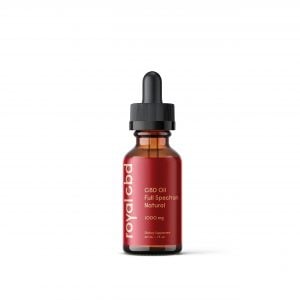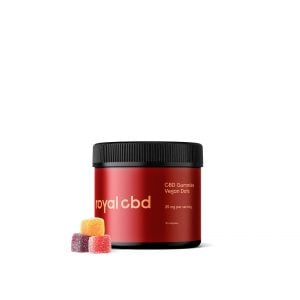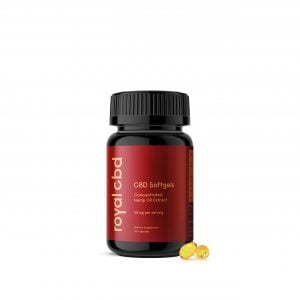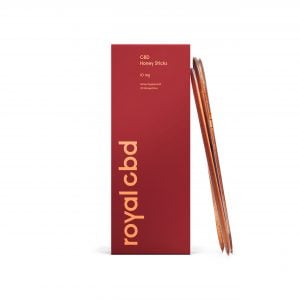Allergies result from an overactive immune system that treats potentially neutral compounds as a threat to the body.
The symptoms of allergies are manifested in itching, droopy eyes, sneezing, runny nose, rashes, and more.
People can be allergic to plant pollen (seasonal allergies) or certain foods (food allergies) — and since CBD oil is a plant-based supplement, people are starting to wonder if it can cause an allergic reaction too.
As CBD products are becoming more popular and relevant, there have been some reports of people experiencing adverse reactions to CBD. Whether they were caused by the CBD or by a sub-par product is up for discussion, so in this article, we explain everything there is to know about CBD and allergies.
From potential allergic reactions to CBD to managing different types of allergies with CBD oil — we leave no stone unturned.
A Brief Overview of Allergies
Allergies are more common in today’s world. You can identify them by some telltale symptoms, such as itching, sneezing, a runny nose, and sometimes difficulty breathing.
But what exactly triggers allergic reactions?
Researchers have concluded that the immune system is responsible for allergies. Usually, the immune system can tell the difference between non-harmful and harmful compounds — protecting us against the latter.
But sometimes, the system identifies benign compounds as the potential threat, creating antibodies to attack these invaders. Antibodies are released every time the body gets in contact with the allergen.
Common food allergies include foods that are high in protein, such as soy, wheat, and nuts. The high protein content makes hemp seed oil a potential contributor to hemp allergies. However, hemp seed oil isn’t the most commonly used carrier oil for CBD extracts.
Back to CBD allergies, here’s everything you need to know about them.
Can You Be Allergic to CBD Oil?
Although not common, CBD might cause allergies.
Full-spectrum CBD oil is made from whole hemp plants, so there’s a risk of transferring the pollen into the CBD formulation. When this happens, a person can get in contact with allergens and experience an allergic reaction.
Only male hemp plants are capable of producing pollen. While industrial hemp farmers grow both male and female plants, CBD oils are derived from female ones. That’s because female plants yield cannabinoid-rich flowers.
There would need to be a cross-pollination in order to pass some of the pollen into the CBD extract.
Still, very little is known about the effect hemp pollen might have on CBD. However, using high-quality extraction methods might reduce its content to zero.
Studies have also found that terpenes in CBD oil may cause allergic reactions. Certain terpenes, such as limonene and linalool, have been known to trigger skin rashes in those who are sensitive to them. However, allergies to terpenes aren’t common.
Since full-spectrum CBD oils contain a range of terpenes, some percentage of users might experience an allergic reaction.
Hemp Seed Allergy
As mentioned earlier, allergies can be caused by high-protein foods. Hemp seeds are a common base for different CBD products, such as creams, lotions, serums, and cooking oils. When used in this way, it should be 100% fat. However, hemp seeds are also rich in protein, and when processed differently (unrefined), they may cause some people to experience symptoms such as hives and redness. Consumers with severe adverse reactions to hemp seed oil should look for CBD oils suspended in different carriers, such as MCT oil or olive oil.
Learn More: CBD Oil vs Hemp Seed Oil
What Are the Symptoms of CBD Allergies?
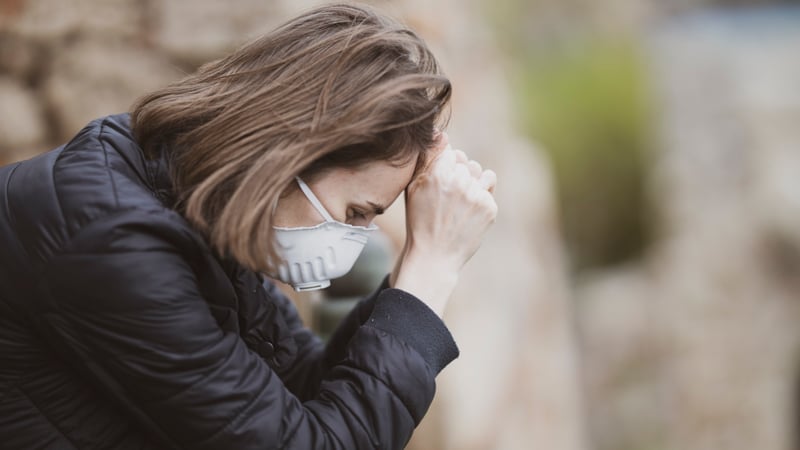
As stated by the American Academy of Allergy, Asthma, and Immunology, individuals with allergies to CBD may show symptoms after inhaling, touching, smoking, or eating products containing CBD.
An allergic reaction happens when the immune system sees a substance as a threat. To protect the body against the ‘invader,’ the system will produce antibodies called Immunoglobulin E, which trigger an allergic reaction.
These reactions vary between individuals depending on the person’s immune system and the number of Immunoglobulin E in the bloodstream. An allergic reaction may not always occur during the first contact with the allergen; it may also change over time.
Since CBD oil comes from hemp plants, most allergic reactions to CBD are similar to allergies caused by fungi and pollen. These symptoms should fade away if you stop taking CBD. Some common allergic reactions to CBD oils include:
- Runny nose
- Sneezing
- Congestion
- Dry cough
- Itching
- Eye irritation
- Skin reactions
- Sore throat
Skin reactions may also occur after using CBD oil topically. Common skin reactions to CBD are:
- Blisters
- Dry skin
- Hives
- Redness
- Irritation
Let’s elaborate on some of the above symptoms.
Can CBD Oil Cause Itching?
It depends on what kind of pitching we’re referring to. When it comes to red, itching eyes, these might occur when a person is allergic to CBD oil or any of the additional ingredients, such as carrier oil, terpenes, flavorings, etc. The fewer ingredients in your CBD oil, the better. The base should only contain hemp extract and MCT oil. However, allergic reactions to high-quality CBD products are not common.
When you apply CBD on the skin, it can cause itching, but the itching may not stem directly from CBD. Carefully look into the list of ingredients to make sure the product doesn’t contain any skin irritants or potential allergens.
A 2019 report from the UK Medicines and Healthcare Products Regulatory Agency (MHRA) found that there were at least two cases of itching after using CBD oil. One patient took an oral formulation and experienced urticaria, a severe skin condition involving swelling, red welts, and severe itching. Another person used CBD both orally and topically and also had itching skin.
Can CBD Oil Give You a Rash?
Although the users of full-spectrum CBD rarely report any allergic reactions, some forms of CBD may cause a skin rash in certain individuals. This side effect may be more common with the FDA-approved drug Epidiolex.
Since the drug has been clinically tested rigorously for both potential benefits and side effects, the prescribing information lists rashes as one of the most common side effects. It also mentions liver problems and itching.
Anyone experiencing these side effects after taking Epidiolex or CBD oil should seek medical intervention immediately.
Can You Have a Bad Reaction to CBD Oil?
CBD is generally considered a safe compound.
According to the most up-to-date review of the safety and side effects of cannabidiol, CBD is well tolerated by humans. The review looked at the dosages between 300 mg and 1500 mg daily administered for several weeks and didn’t find any severe or life-threatening side effects.
That being said, high doses of CBD oil can cause a few mild reactions, such as:
- Dry mouth
- Dizziness
- Fluctuation of appetite
- Diarrhea
CBD can also interact with a wide range of pharmaceutical compounds. If you take any medication and want to include CBD in your daily routine, consult the idea with your doctor. Doing so will help you avoid negative interactions on top of establishing an optimal dosage. Look for holistic doctors who are experienced in the CBD space for professional advice.
Can CBD Oil Help with Allergies?

CBD supports the endocannabinoid system (ECS) — the prime regulatory neurochemical network in your body. The ECS keeps all your systems and their organs in a state of homeostasis by producing its own cannabinoid molecules (endocannabinoids).
CBD encourages the body to produce more of its own cannabinoids through ECS signaling. On top of that, it helps maintain their optimal levels in the body to regulate its essential functions, including the immune response.
Here’s how CBD oil may help with allergies:
- CBD may bolster your immune system. Allergies don’t just happen; they result from an overactive immune system that identifies benign molecules as a potential threat. When you take CBD for allergies, it interacts with the CB2 cannabinoid receptors in the immune system, improving the communication between its cells and promoting a healthy immune response.
- CBD produces significant anti-inflammatory effects. The potential positive impact of CBD on allergies is mostly attributed to its anti-inflammatory effects. Again, the endocannabinoid signaling allows CBD to stop the production of pro-inflammatory compounds called cytokines. Reducing inflammation may lower the discomfort associated with allergic reactions.
- CBD has antimicrobial properties. Allergies tend to make you more vulnerable to infections. CBD and terpenes in full-spectrum CBD oil offer antimicrobial properties that can be used to mitigate the collateral damage caused by allergies. This can be achieved through CBD’s interaction with the body, which aids it in fighting off a true infection instead of trying to eradicate falsely identified intruders.
- CBD improves stress response. Allergies can be disturbing both physically and mentally. The increased amount of stress can cause the symptoms to deteriorate because chronic stress further weakens the immune system. Regular supplementation with CBD oil can help you get through the distraction of sneezes, sniffles, coughing, and itching.
Below we take a look at how CBD oil may help mitigate different types of allergies.
CBD Oil for Food Allergies
Food allergies can be easily avoided by simply not eating the food that causes an allergic reaction. Common symptoms of food allergies include tingling in the mouth, swelling of the lips, and hives. Similar symptoms occur when you are stung by an insect; this can also cause swelling at the itching site, and shortness of breath. Food allergies involve a combination of these symptoms.
There’s also a risk of anaphylaxis, which is a life-threatening condition manifested in a severe allergic reaction.
During an anaphylactic shock, CBD won’t help because it’s a supplement, not a medication.
However, CBD can ease the symptoms of regular allergies, such as the aforementioned itching, swelling, and inflammation.
CBD Oil for Hay Fever
The antibacterial effects of CBD may help alleviate the side effects of seasonal allergies. High-strength full-spectrum CBD oils may open up sinuses and reduce pressure in the nasal pathways, preventing congestion. Seasonal allergies lead to inflammation and increased histamine production, resulting in difficulty breathing, eating, drinking, and talking without irritation. Current studies show that CBD oil may reduce these symptoms and lessen the discomfort caused by seasonal allergies.
The Benefits of Using CBD Oil for Allergies
Although scientists have yet to conduct studies that would look into the direct effects of CBD on allergy, there’s a lot of reports from CBD users and related studies suggesting that CBD oil may provide relief from allergies.
CBD can:
- Promote an anti-inflammatory response (1)
- Block the release of histamine (2)
- Reduce the symptoms of allergic reactions (3)
As noted by a 2005 study, CBD may inhibit the release of histamines using a similar mechanism to antihistamine medications. Histamine is the “why” behind many allergic reactions, such as wheezing, sneezing, coughing, red eyes, and runny nose.
Increased concentrations of histamines in the body cause inflammation. Aside from the potential inhibitory mechanism on the release of histamine, CBD may also promote an anti-inflammatory response by blocking the release of proinflammatory cytokines. This, in turn, translates into less swelling and irritation that people experience during an allergic reaction.
These health benefits result from CBD’s interaction with the endocannabinoid system. Using CBD may strengthen the immune system through endocannabinoid signaling, which makes them potentially useful for the prevention of allergies.
That being said, we need more clinical human trials that would evaluate the efficacy of CBD for allergies.
How to Take CBD Oil for Allergies
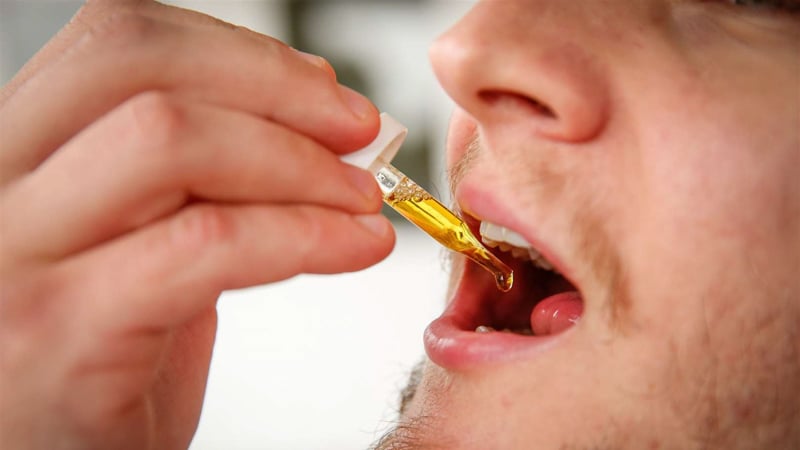
CBD is available in several forms, including:
- CBD Oils: CBD oil is the most common way to supplement cannabidiol. It’s made of a hemp extract and a carrier oil that improves the absorption rate of CBD. CBD oils are easy to use; you need to measure out the desired amount of CBD into the attached dropper, place the dose under your tongue, and hold it there for about 60 seconds. The CBD will be absorbed directly into the bloodstream, avoiding the first-pass metabolism in the liver.
- CBD Capsules: Capsules are a good pick if you’re not a fan of the earthy flavor of natural CBD oil. This form of CBD also takes away the guesswork because each capsule contains a premeasured amount of CBD. They’re convenient to carry around and provide a discreet way to take CBD. However, since the CBD needs to pass through the digestive system, the effects are delayed by 40–90 minutes.
- CBD Edibles: This category covers products like honey sticks, gummies, protein bars, and beverages. People are turning to CBD edibles because they offer a fun way to get your daily dose of CBD. Similar to capsules, edibles need to be processed by the liver, so the effects have a delayed onset. On the other hand, since CBD is released gradually into the bloodstream, it also lasts longer than vapes and oils.
- CBD Vapes: Vaping is the fastest and most effective way to feel the benefits of CBD. They come as disposable vape pens or reusable cartridges where you add your favorite CBD E-liquid to the tank. You can vape CBD wherever vaping e-cigs are allowed. This form of consumption also provides the highest bioavailability of all consumption methods, with 56% of the inhaled CBD being absorbed by the body.
- CBD Topicals: Topicals can be used as a natural alternative to conventional creams. They address localized problems, such as physical discomfort, redness, swelling, and itching by interacting with the cannabinoid receptors located under the skin. Topical products usually contain additional ingredients, so always check if there are no irritants or allergens in the formula.
CBD Dosage for Allergies
It’s natural to expect some framework for dosing CBD oil, but frankly speaking, there is no one-size-fits-all dosage.
Everybody is different and so is our response to CBD is different too. Factors like weight, sex, age, metabolism, the severity of symptoms, and the time of the day can affect the right dosage range.
For daily supplementation — the way most people use CBD oil to support the immune system — doses between 10–50 mg daily is considered effective. Depending on your situation, you may need more or less CBD in your routine.
Experts suggest that new users should start with 1–6 mg of CBD for every 10 pounds of their weight. Don’t give up if you don’t feel immediate effects. Sometimes, CBD may need more time to level the cannabinoid deficiencies and help your body return to homeostasis. You can test specific dosages for at least one week, writing down how you feel after each dose to track progress and adjust the amount of CBD accordingly.
CBD Oil and Allergies: Bottom Line
Food allergies and seasonal allergies affect millions of people across the globe. While allergic reactions to CBD oil are extremely rare, there have been a few clinical examples of itching, rashes, sneezing, coughing, and other typical symptoms of pollen allergy.
You can also have a reaction from using CBD topically, especially if there are other ingredients in your products, such as terpenes, plant-based extracts, or other ingredients that you might be sensitive to.
If your CBD oil is infused in hemp seed oil, you may experience a food allergy if you’re allergic to other high-protein plant food, such as soy, wheat, or nuts. Fortunately, most premium CBD oils are suspended in MCT oil.
On the other hand, CBD has been touted by many studies for its immunomodulatory and anti-inflammatory properties. Not only can CBD reduce inflammation, but it can also inhibit the release of histamines, thus easing the common symptoms of allergy.
Until researchers come with a sufficient amount of clinical evidence regarding the link between CBD oil and allergies, it’s up to the user to decide whether or not being allergic and taking CBD oil can go hand in hand.
Have you ever had an allergic reaction to CBD oil? Let us know in the comments what kind of CBD it was — and how your story ended!
References:
- Nagarkatti, Prakash et al. “Cannabinoids as novel anti-inflammatory drugs.” Future medicinal chemistry vol. 1,7 (2009): 1333-49. doi:10.4155/fmc.09.93
- Rieder, Sadiye Amcaoglu et al. “Cannabinoid-induced apoptosis in immune cells as a pathway to immunosuppression.” Immunobiology vol. 215,8 (2010): 598-605. doi:10.1016/j.imbio.2009.04.001
- Vuolo, Francieli et al. “Cannabidiol reduces airway inflammation and fibrosis in experimental allergic asthma.” European journal of pharmacology vol. 843 (2019): 251-259. doi:10.1016/j.ejphar.2018.11.029
